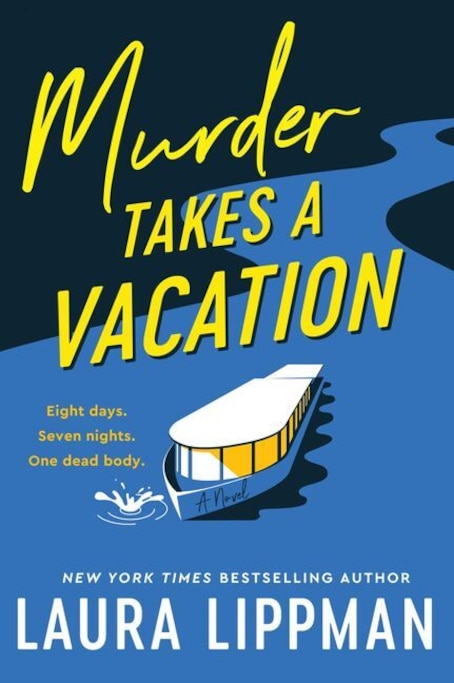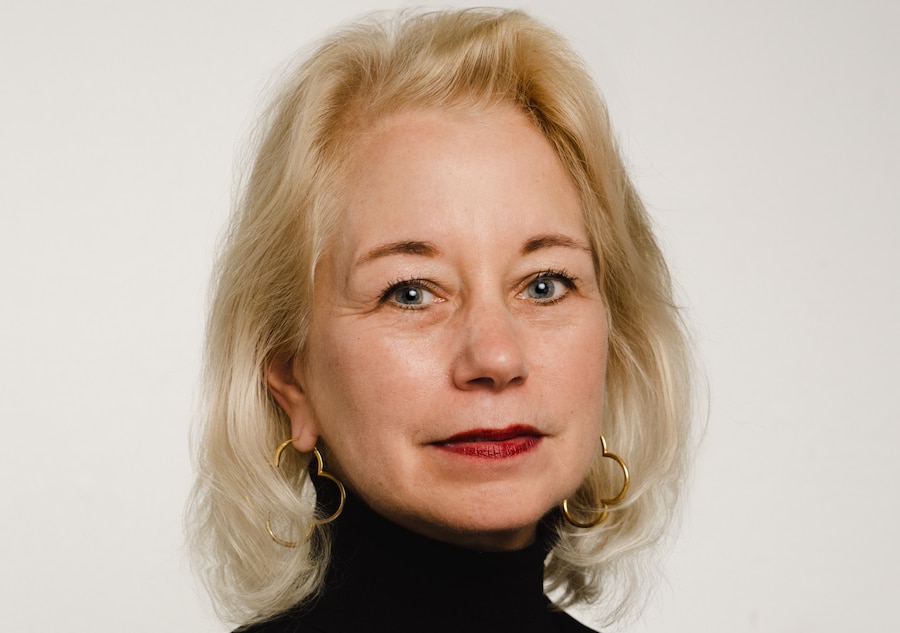At the beginning of master mystery writer Laura Lippman’s latest novel, “Murder Takes a Vacation,” Mrs. Muriel Blossom seems as dowdy as a pair of 1990s flowered curtains.
Widowed, retired and having recently found a winning lottery ticket in a parking lot, Mrs. Blossom is embarking on her first solo European trip, feeling a bit awkward, self-conscious about her weight and only too glad to receive attention from a silver-tongued, silver-haired stranger.
After all, Mrs. Blossom, the former assistant to Lippman’s sexy, hard-boiled protagonist Tess Monaghan, is used to blending into the background, like Laura Ashley floral wallpaper.
But by the end of the book, Mrs. Blossom has lost a new love interest to murder, unwound a web of deception, processed a painful incident from her past and surprised herself with her own strength and resourcefulness.
Mrs. Blossom has, well, bloomed. Her name takes on more meaning, layers of petals opening. Like Lippman, she is in her 60s and being squarely in the second half of her life opens her up to new possibilities and freedom.
As Mrs. Blossom grows to think of herself as the main character in her life, she makes for a delightful protagonist. She ponders aging and her body, friendship and romance, desire and regret. She traverses Paris and the French countryside, makes new friends and catches a murderer.
Lippman, who will join The Banner Book Club on Wednesday evening at 6 p.m., spoke with The Baltimore Banner about “Murder Takes a Vacation” and Mrs. Blossom’s blossoming.
This interview has been edited for clarity and concision.
How did you decide to make Mrs. Blossom the protagonist of this book?
After the last two novels I wrote, I wanted to spend time with someone nice.
And I had also come to believe that I had been unfair to Muriel Blossom. During the pandemic, I started to educate myself in anti-fatness. I became a fan of podcasters Aubrey Gordon and Virginia Sole-Smith.
I wanted to bring Mrs. Blossom back so I could do better by her. I’m her age now. She is an amalgam of three Lippman women: my mom, my sister and me. She’s a lot like my sister, a very modest, shy person who also happened to have very avant-garde taste in music when we were teenagers. Mrs. Blossom, I believe, is incredibly sexy. She has this indefinable quality. Men are very drawn to her.
“Murder Takes a Vacation” is your 30th book, but the first “cozy mystery” that you have written. What was it like switching genres?
Over 30 years of writing mysteries, I’m always trying to do something different. I never want to feel comfortable.
This was the hardest book I’ve ever written. Dying is easy. Comedy is hard. There are really strong expectations within a cozy. You’re writing about a real world, where there are real stakes and someone has died and people are at risk. It has to make sense for your character to get involved. You need a big cast. The whodunit part is a big part of a cozy.

The cover of Laura Lippman’s “Murder Takes a Vacation.” (William Morrow)
Cozies get a bad rap, not by everybody, but there are some really contemptuous voices in the mystery writing world, but I’ve always read and loved cozy mysteries.
How do you write novels? Does the plot come to you fully formed, or do you figure it out as you write?
There are people who outline and people who are pantsers, that is we write by the seat of our pants. I’m more or less a pantser. I know the big secret, but my characters don’t. I think of it as the distant shoreline school of plotting. You may think you can see what’s on the other side, but you don’t know for sure. It’s really about the journey of getting there and what you learn along the way.
I picked up the book thinking it would be the ultimate beach read, a fluffy tale of murder on a cruise, but soon discovered it was also a meditation on romantic love, friendship and aging.
Mrs. Blossom is undergoing a major life change. She’s alone and she has this big secret. She’s never found anyone that she felt she could entrust with this secret.
I don’t feel my age. Ageism and anti-fat attitudes have a lot in common. You’re walking around in your body and you feel perfectly comfortable in it. It’s almost a cliché to say how women disappear when you reach a certain age.
We’ve commodified everything in our culture so that even people are treated as objects. By cultural standards, I’m not a trophy. I’m not a prize. I wouldn’t be value added for most men. I wanted to write about what it’s like to be a woman in your 60s.
You wrote this book at a very challenging time in your life. As you write in the author’s note, this is the first book that you’ve written that your mother, who died last year, did not get to read. You got divorced a few years ago, as you wrote about in your memoir. But there’s also a lot of joy in this book.
I feel I have an obligation to be consciously joyful every day. The bigger goal is to try to leave the world a little better than I found it — to try to be a good citizen, a good mom, a good sister. It seems like such a waste of time to not be happy if you don’t have a pressing reason not to be happy.
As I’ve spoken with friends who read this book, I was struck by how many people — female and male, older and younger — said they wanted to read another Mrs. Blossom mystery. Do you have plans to bring her back?
Yes! I had started another book, a dark, strange book, but then another Mrs. Blossom story came to me.
I know who the killer is. And I know why the killer killed. But other than that, I don’t know very much. I’ve managed to strand a bunch of people on top of a mountain in Tuscany. Someone has died. There has been a mudslide that has cut off the only road down the mountain.
In the second book, Mrs. Blossom is more confident. There’s romance. But she’s 68-69, and she’s thinking about what she really wants.
Mrs. Blossom is a really kind person in a time when kindness and empathy feels in short supply. There’s a line in the first book saying that the one thing Mrs. Blossom doesn’t understand is cruelty. She just doesn’t understand why someone would be unkind to someone else. I’m trying to be more like Mrs. Blossom.

